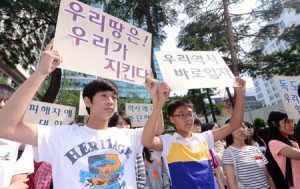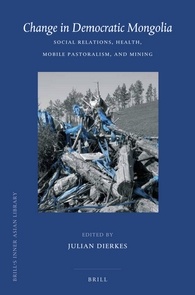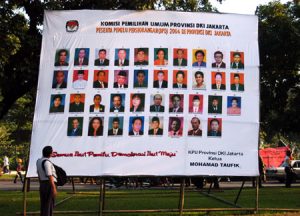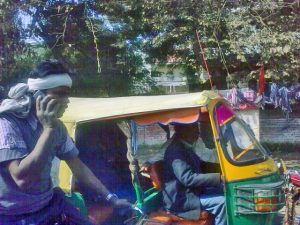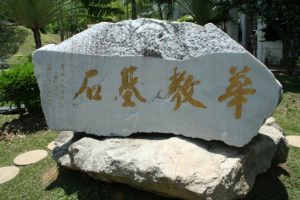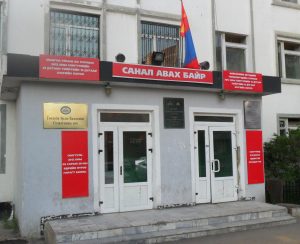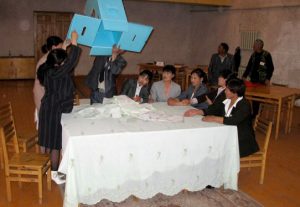독도/다케시마 영토 분쟁을 교육적 계기로 활용하자
Memo #184 (English translation available) – 최근 한일 양국 사이에 위치한 작은 섬 – 한국명 독도, 일본명 다케시마-을 둘러싸고 외교적 긴장 관계가 조성되고 있다. 물론 이와 같은 긴장관계가 조성된 것이 이번이 처음은 아니다. 일제의 한반도 강점은 독도 문제를 포함한 많은 식민주의의 상흔들을 한국에 남겼는데, 이런 상흔들은 전후 동아시아에서 발생한 여러 차례의 외교적 갈등의 도화선으로 작용하곤 했다. 최근 양국 사이에는 일찍이 두 나라가 경험해 보지 못한 수준의 경제적, 문화적 교류가 활발하게 진행되고 있었다. 하지만, 독도를 둘러싸고 벌어진 양국의 배타적인 민족주의의 발흥은 그 동안 이룩한 협력의 성과를 무색하게 하고 있다. 이런 상황 속에서 양국의 위정자들은 교육자들에게 독도에 대한 각국의 영유권 주장을 정당화하는 민족주의적 국가교육과정을 학생들에게 가르치도록 요구하고 있다. 만약 교육자들이 맹목적으로 이 요구를 수용한다면, 우리는 양국에 대한 상호 이해와 존중이라는 교육적으로 유의미한 가치를 다음 세대들에게 교육할 매우 귀중한 기회를 잃게 될 것이다.
Change in Democratic Mongolia (Video Interview with Dr. Julian Dierkes)
Memo #181 – In this interview, Dr. Julian Dierkes introduces the edited volume “Change in Democratic Mongolia: Social Relations, Health, Mobile Pastoralism, and Mining.” By tracing rapid change in Mongolia in four broad fields of contemporary social relations, the chapters in this volume will elucidate the state of contemporary Mongolia and help us understand Mongolia ten or 20 years from now.
Political Parties and Islam in Indonesia: A Religious Façade
Memo # 178 – Portrayals of Indonesian political parties have classified them as either secular or Islamic. This implies that they hold strong core commitments. But Indonesian parties do not espouse a coherent political program during elections. Islamic and secular-nationalist parties alike appeal to the public with populist slogans. Controversial religious issues, such as the role of Sharia law or the status of the Ahmadiyah Islamic sect – which could differentiate parties along clear secular-religious lines – are ignored on the campaign trail. Contrary to mainstream analysis, religion plays a minimal role in Indonesia’s party competition.
Why Technology Needs People: Gold, Phones, and Bicycles
Memo # 177 – “We treated our precinct captains like gold,” wrote David Plouffe, an architect of President Obama’s 2008 US election campaign. “The challenge” lay in “marrying digital technology and strategy with a strong grassroots campaign.”
Plouffe’s insights had been anticipated a year earlier in an election in Uttar Pradesh, India’s largest state, where a party led by a Dalit (former untouchable) woman won unexpectedly. And the story about the centrality of technology and people came full circle early in 2012 when Uttar Pradesh voted to throw out the incumbent government.
Mobilizing the Chinese Education Movement in Malaysia
Memo #174 – The Chinese education movement in Malaysia fought for the survival of Chinese vernacular schools within the Malay-dominated education system since 1951. Today it is one of the most influential political entities among Chinese-speaking Malaysians. It is playing a critical role in influencing votes to support a movement-friendly political alliance in the next general election.
Mongolia Remains Key To US Strategy in Asia
Memo #173 – Mongolia continues its rapid ascent in the strategic playbook of the United States and the West. The US views Mongolia through an integrated lens balancing its economic interests with strategic concerns. As the world’s fastest growing economy (GDP growth at 17.3 per cent in 2011), Mongolia is an appealing target for foreign investors in sectors such as mining, nuclear power, and technology. For Washington though, security still trumps in Mongolia. The US continues to view Mongolia as a credible partner in an uncertain area filled with truculent neighbours.
Global Security – the Shifting Axis, Kepler-16b, and Two Suns
Memo #171 – Star Wars fans worldwide remember the iconic scene of Luke Skywalker peering into a sky at dusk with not one but two suns sinking over the horizon of his home planet of Tatooine.
Women Part of a Major Turnover in Mongolian Parliament
Memo #168 – Mongolians voted in a parliamentary election on June 28, 2012 according to a new electoral system that mixed majoritarian and proportional representation. It also included a new quota requirement for women candidates.
Indonesia’s Unconsolidated Democracy: Prelude to 2014
Memo #163 – The “Indonesia Model,” the post-1998 political transformation and institutional reform process during which Indonesia’s primarily Muslim society shed the shackles of authoritarianism, is considered an exemplar for Arab Spring countries transitioning to democracy. But transition marks only the beginning: consolidation occurs when liberal institutions and democratic norms are fully embedded.
Mongolian Election: Bumpy Road, but Heading in the Right Direction
Memo #161 – Elections are milestones in democratic development. With the closing of nominations on June 6, 2012, the campaign for the Mongolian parliamentary election officially opens. Observers seem pessimistic about Asia’s only post-socialist democracy. But the upcoming election promises to be more carefully organized and transparent, and public discussions of corruption will strengthen democracy.
